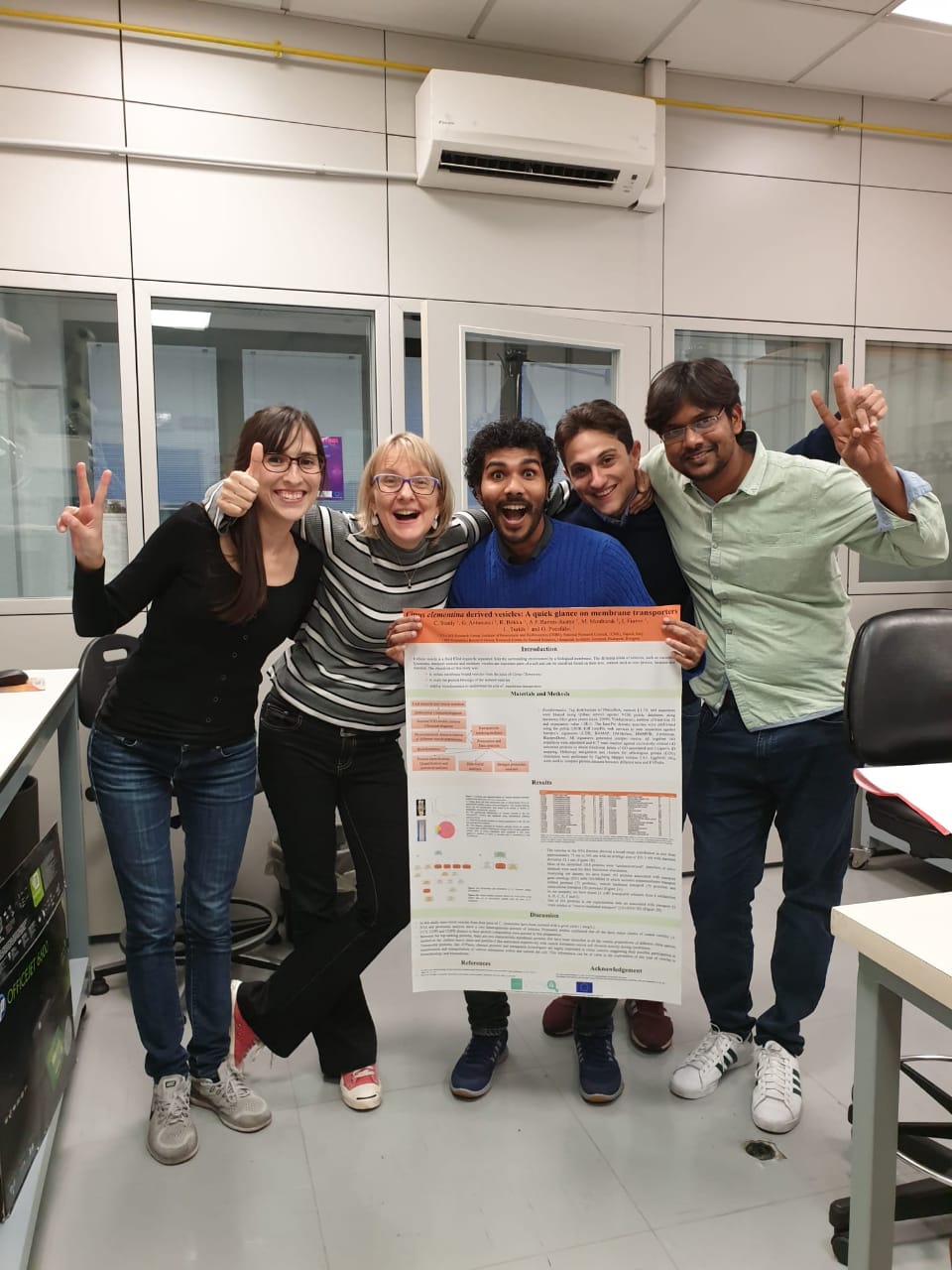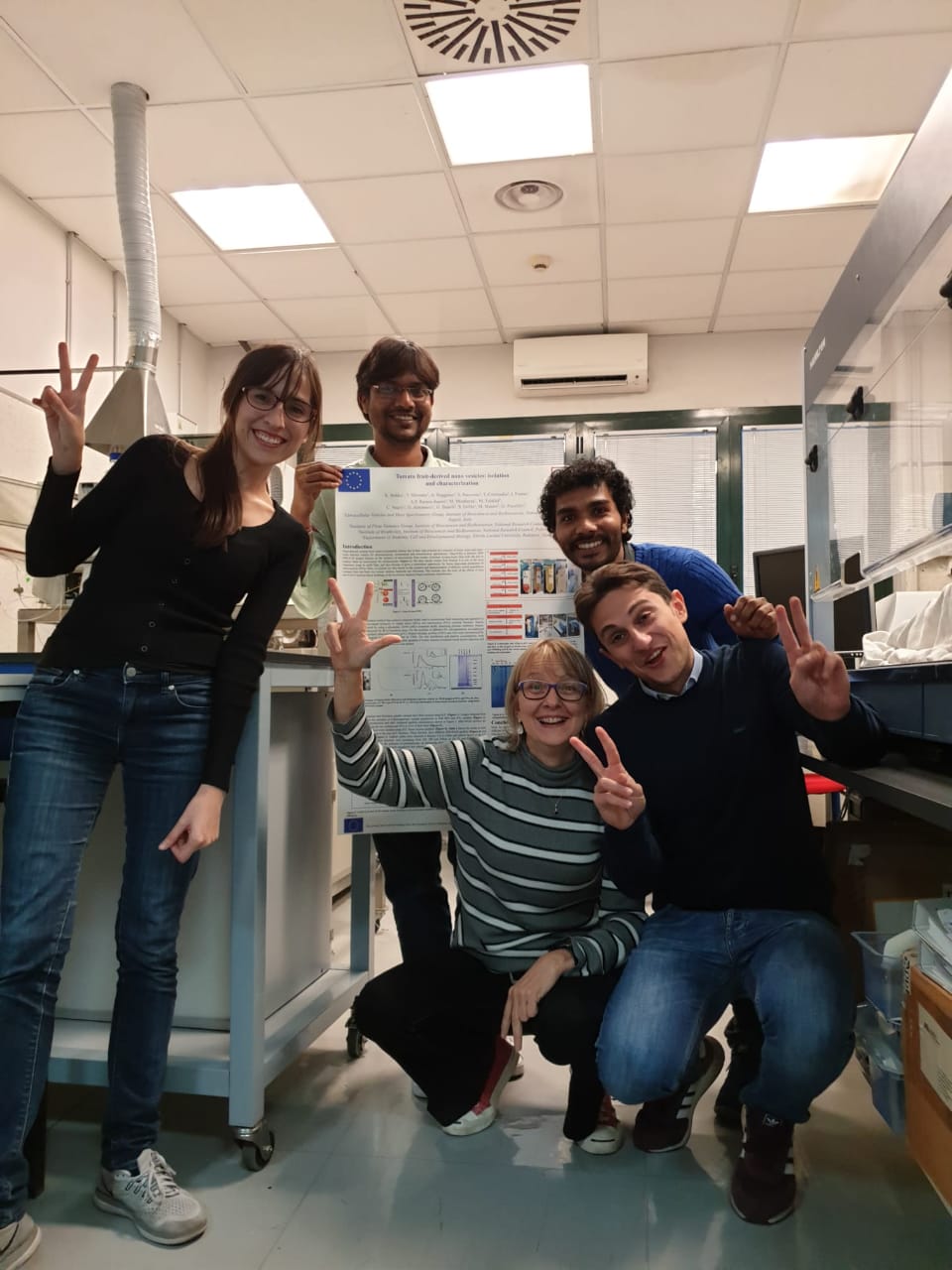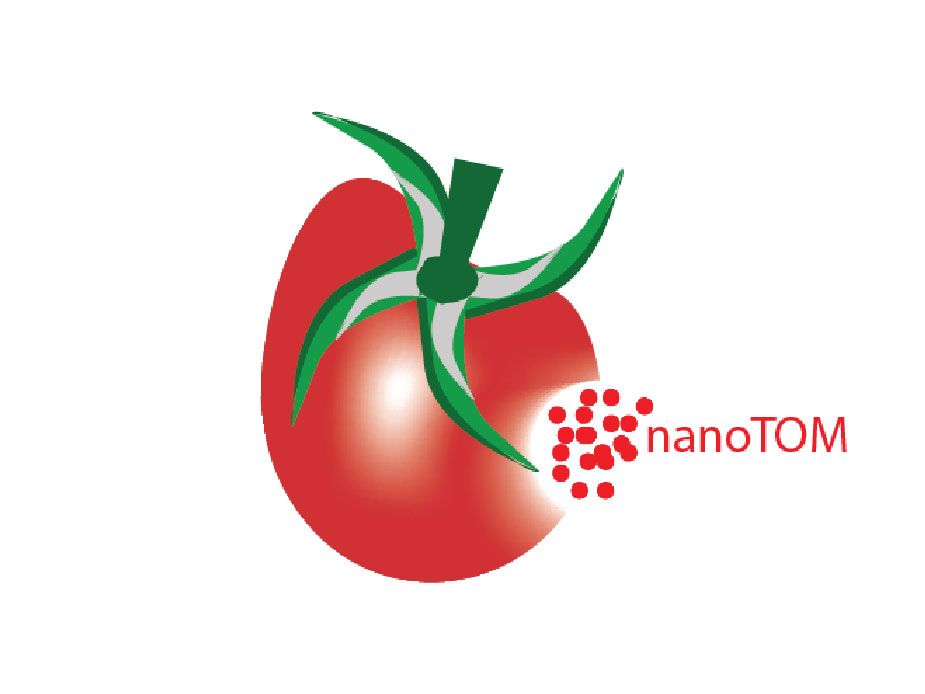Acronym: nanoTOM
The main aim of the project was the conversion of natural plant-derived nanovesicles into a nutraceutical delivery system. Although lipophilic nutraceuticals have various health benefits, they are not fully utilized by the human body due to their generally low solubility, chemical instability, and low bioavailability. In nanoTOM, we isolated and employed tomato-derived nanovesicles to develop an effective delivery system for lipophilic nutraceuticals. We have selected tomato fruit because it is a healthy, high economic value agri-food. Moreover, S. lycopersicum has a sequenced genome that facilitates molecular studies. MSCA fellow, Ramesh Bokka post-doc from India has worked on the following specific objectives from 2018-2020:
Isolation of extracellular vesicles from the apoplastic fluid of tomato leaves, fruit juice, and root exudate:
We have applied ultracentrifugation (UC) for the isolation of nanovesicles from the tomato plant. Also, we have applied gradient ultracentrifugation (GUC) and size exclusion chromatography (SEC) for further purification and separation of nanovesicles. In addition to that, we tried to develop novel polymeric material for the isolation of nanovesicles.
Physical, chemical, and biological characterization of different populations of nanovesicles:
We have used dynamic light scattering (DLS) and nanoparticle tracking analysis (NTA) for the determination of the size distribution and particle numbers. Morphological characteristics of the vesicle preparations have been determined by transmission electron microscopy (TEM) and scanning electron microscopy (SEM). Different omics techniques like proteomics, lipidomics, and metabolomics were employed for the molecular characterization of the vesicles.
Biological, uptake, distribution, and toxicological properties of nanovesicles:
Cellular uptake and anti-inflammatory effects of tomato nanovesicles were studied using human macrophages. We have employed C. elegans invertebrate model system to study the uptake and bioactivity of nanovesicles in vivo.
Loading and encapsulation of nutraceuticals into nanovesicles:
We have selected curcumin a well-known nutraceutical for its various medicinal uses. We have successfully loaded curcumin into nanovesicles. A study on the bioactivity of the curcumin-loaded vesicles is in progress.
Link: https://cordis.europa.eu/project/id/798576
This project has received funding from the European Union’s Horizon 2020 research and innovation programme under the Marie Skłodowska-Curie grant agreement No 798576.



